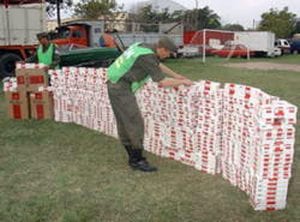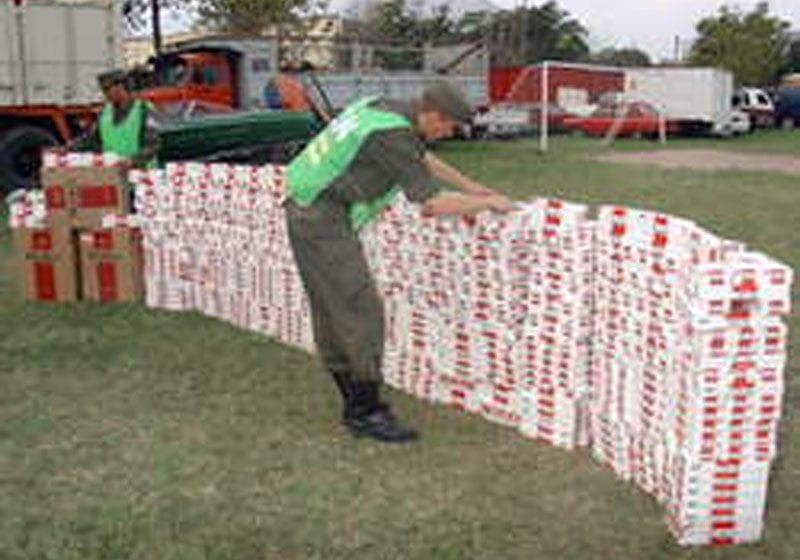
Illegal tobacco traders did brisk business in the Philippines during the Covid-19 pandemic, reports The Manila Bulletin, citing data presented during a recent webinar organized by the National Tobacco Administration (NTA).
According to the Bureau of Internal Revenue (BIR) and Bureau of Customs (BOC) revenue loss from illegal tobacco trade went up by 662 percent to PHP3.1 billion ($59.3 million) in 2020 from just PHP406.9 million in 2019.
During the webinar, Representative Jericho Jonas B. Nograles, said the BOC seized PHP132.56 million worth of fake cigarettes. According to Euromonitor International, about 13 percent of the total cigarettes sold in the Philippines are illegal.
“What happened in the last few years? Number one: unemployment and a decrease in income have put pressure on the household budget. It’s difficult to stop smoking, but it’s easy to spend money. People want to save money amidst rising prices of commodities and decreasing household income,” Nograles explained at the NTA webinar.
The pandemic also made it difficult for authorities to crack down on illegal activity, according to the BIR. “We were not able to operate on a massive implementation because we cannot go into some areas that are under lockdown,” said Attorney Beverly Milo, head, revenue executive assistant for the BIR’s Large Taxpayers Service Excise.
In Jan. 2022, cigarette prices went up due to a PHP55 percent increase in excise tax. A study by management consulting firm Alvarez and Marsal cited a 97 percent correlation between taxes and tobacco prices, in which the illegal tobacco trade grows as the legal options become more unaffordable.
Tobacco products like cigarettes are among the most smuggled goods in the ASEAN region. According to the World Bank, the global trade of illicit tobacco is worth between $40 billion and $50 billion.
The Philippines neighbors struggle with illicit tobacco trade, too. Malaysia lost out on tax earnings of approximately MYR1 billion ($228,83 million) in 2020.
All ASEAN member states save for Indonesia are signatories of the WHO Convention on Tobacco Control. This requires countries to suppress the illegal tobacco trade. However, no ASEAN states are part of the Protocol to Eliminate Illicit Trade in Tobacco Products, which requires cooperation and information sharing between countries, including international organizations and customs offices.
Nograles recommended strengthening enforcement and ramping up cooperation as measures to eradicate the illegal tobacco trade. This should include improving intelligence sharing between agencies and implementing stringent frameworks for the prosecution and conviction of illegal traders,” he said.











